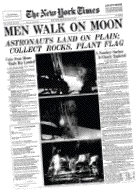Home > Archive > 2009 > July > 19
What a 140-char message looks like in RSS
Sunday, July 19, 2009 by Dave Winer.
 Here's a screen shot to contemplate.
Here's a screen shot to contemplate. ![]()
There are two 140-character messages. Each illustrates features of the new shipwreck I hope to sink, to create a new coral reef for Twitter-like systems to grow on and around. ![]()
The first three items in each message are fairly obvious: ![]()
<description> holds the 140-character text. ![]()
<pubDate> is the timestamp, when the message was created. ![]()
<guid> is the identifier for the message, so a reader can tell if they've seen it before. ![]()
This makes it possible for the messages to be edited after publication, a common feature requests from writers using Twitter. ![]()
After that come optional elements. ![]()
<category> works like tags in apps like Flickr or YouTube. You specify them in a dialog, blanks separate them, you can create tags with blanks by putting them inside quotes. ![]()
<link> is used to point to web pages. No need to shorten the URLs because they don't take up space in the 140 characters. ![]()
<enclosure> is how you attach media objects to messages. Again, no need to shorten the URLs. And since the clients know the media type, they can show a preview, or embed a player. ![]()
These all use well-understood elements of RSS 2.0. Nothing new needed to be invented. ![]()
Recent stories
 Dave Winer, 54, pioneered the development of weblogs, syndication (RSS), podcasting, outlining, and web content management software; former contributing editor at Wired Magazine, research fellow at Harvard Law School, entrepreneur, and investor in web media companies. A native New Yorker, he received a Master's in Computer Science from the University of Wisconsin, a Bachelor's in Mathematics from Tulane University and currently lives in Berkeley, California.
Dave Winer, 54, pioneered the development of weblogs, syndication (RSS), podcasting, outlining, and web content management software; former contributing editor at Wired Magazine, research fellow at Harvard Law School, entrepreneur, and investor in web media companies. A native New Yorker, he received a Master's in Computer Science from the University of Wisconsin, a Bachelor's in Mathematics from Tulane University and currently lives in Berkeley, California.
"The protoblogger." - NY Times.
"The father of modern-day content distribution." - PC World.
One of BusinessWeek's 25 Most Influential People on the Web.
"Helped popularize blogging, podcasting and RSS." - Time.
"The father of blogging and RSS." - BBC.
"RSS was born in 1997 out of the confluence of Dave Winer's 'Really Simple Syndication' technology, used to push out blog updates, and Netscape's 'Rich Site Summary', which allowed users to create custom Netscape home pages with regularly updated data flows." - Tim O'Reilly.
Dave Winer
© Copyright 1994-2009 Dave Winer
Last update: 7/19/2009; 5:15:08 PM Pacific. "It's even worse than it appears."